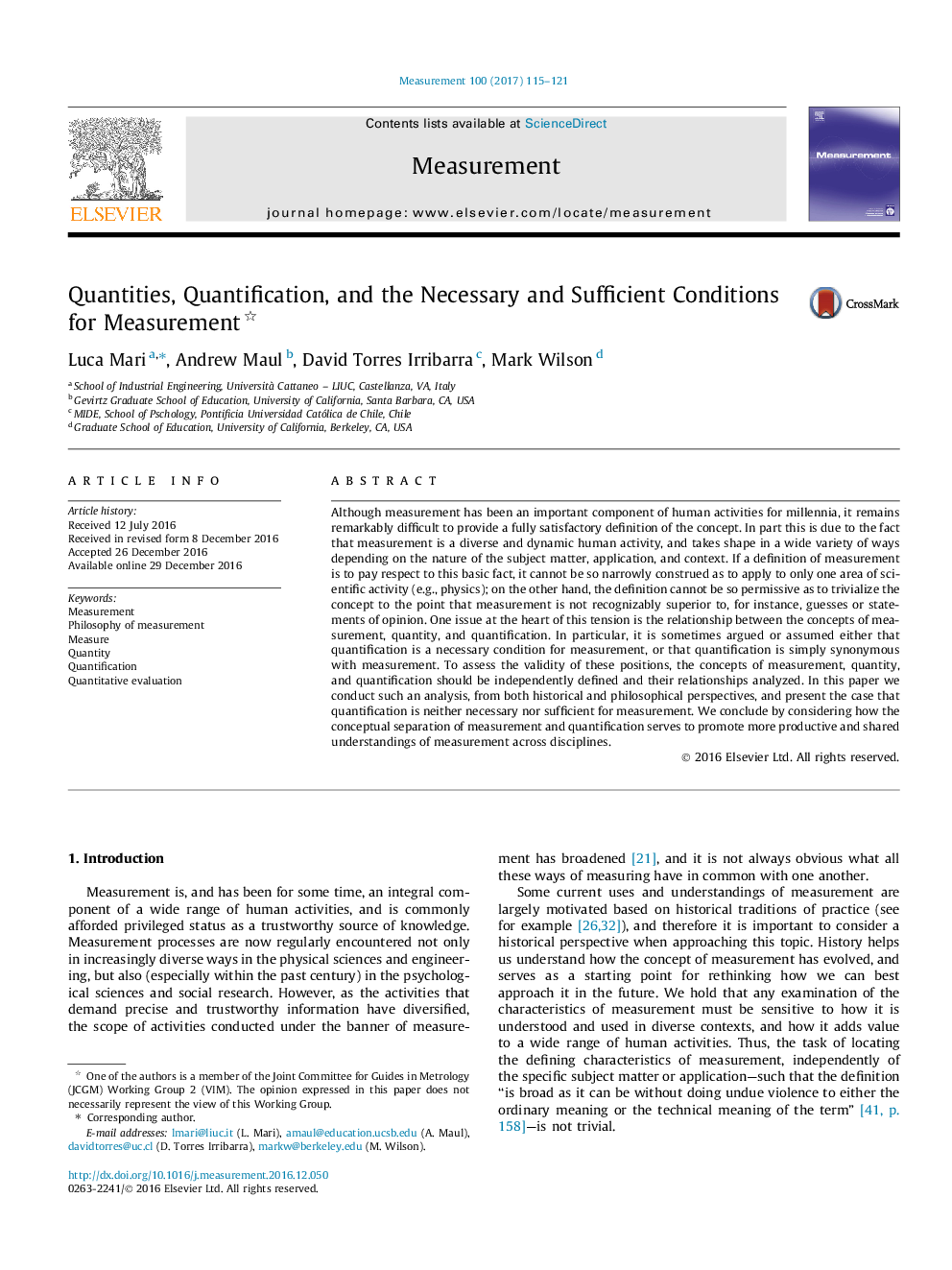| Article ID | Journal | Published Year | Pages | File Type |
|---|---|---|---|---|
| 5006559 | Measurement | 2017 | 7 Pages |
Abstract
Although measurement has been an important component of human activities for millennia, it remains remarkably difficult to provide a fully satisfactory definition of the concept. In part this is due to the fact that measurement is a diverse and dynamic human activity, and takes shape in a wide variety of ways depending on the nature of the subject matter, application, and context. If a definition of measurement is to pay respect to this basic fact, it cannot be so narrowly construed as to apply to only one area of scientific activity (e.g., physics); on the other hand, the definition cannot be so permissive as to trivialize the concept to the point that measurement is not recognizably superior to, for instance, guesses or statements of opinion. One issue at the heart of this tension is the relationship between the concepts of measurement, quantity, and quantification. In particular, it is sometimes argued or assumed either that quantification is a necessary condition for measurement, or that quantification is simply synonymous with measurement. To assess the validity of these positions, the concepts of measurement, quantity, and quantification should be independently defined and their relationships analyzed. In this paper we conduct such an analysis, from both historical and philosophical perspectives, and present the case that quantification is neither necessary nor sufficient for measurement. We conclude by considering how the conceptual separation of measurement and quantification serves to promote more productive and shared understandings of measurement across disciplines.
Related Topics
Physical Sciences and Engineering
Engineering
Control and Systems Engineering
Authors
Luca Mari, Andrew Maul, David Torres Irribarra, Mark Wilson,
